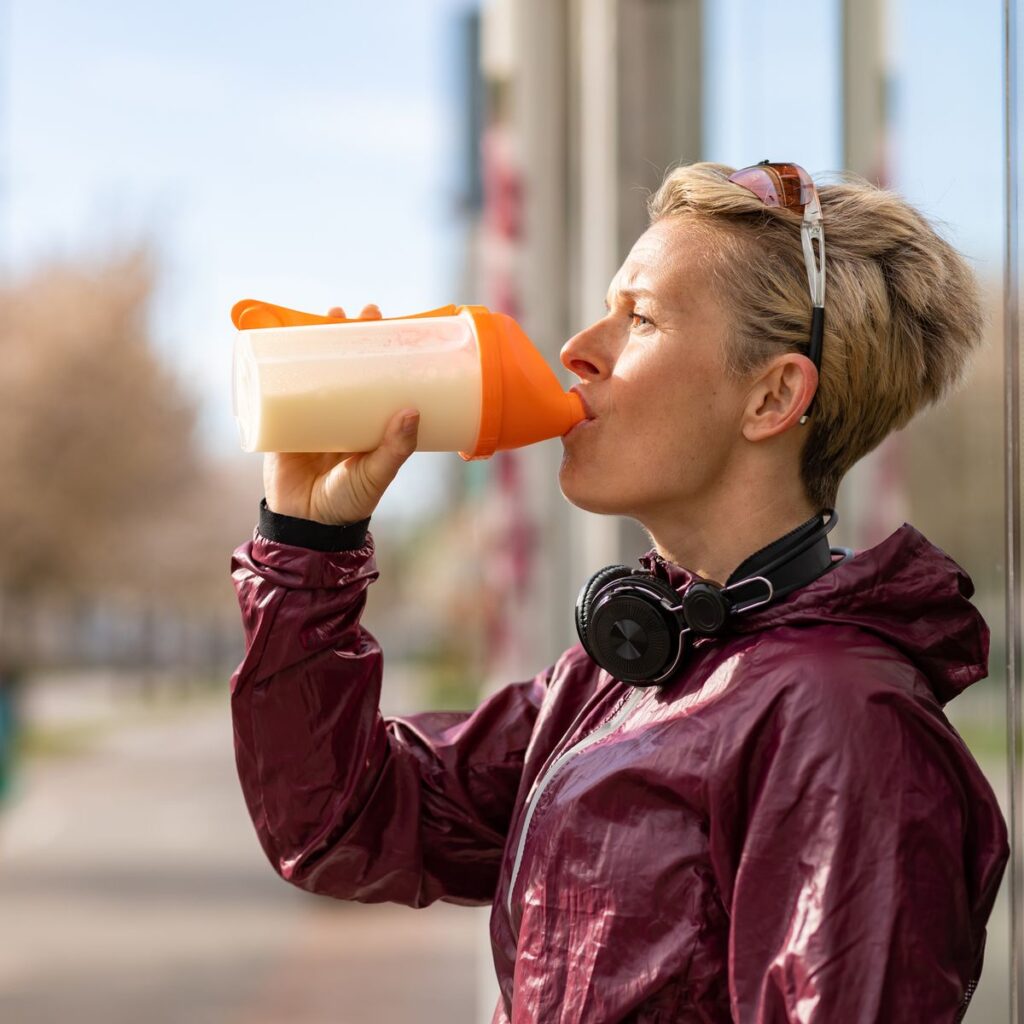Alcohol, carbs, recipes, and more—here’s what you loved reading about this year and how it can inform your fuelling going forward.

With new health trends emerging constantly, navigating the world of health and nutrition can be overwhelming. When considering changing your health lifestyle, it’s always helpful to carve out some time to reflect on what has worked well and what hasn’t in the past.
In terms of running performance, maybe that means reviewing your run times, workout schedule, and sleep routine. One thing it should also include: analysing your nutrition strategy.
Runner’s World editors and writers spend countless hours researching and exploring nutrition trends, advice, and the best ways to fuel performance so you can take your health and mileage to the next level. While we learned to avoid certain eating habits this year (ahem, like the watermelon diet), we’ve also discovered effective ways to optimise your nutrition for the new year.
Here, the top nutrition stories—and what they can teach you for your healthy pursuits in the future.
All About Alcohol
After the World Heart Federation (WHF) announced that no amount of alcohol is good for your heart, many of us were left wondering if that meant we should stop drinking alcohol all year around and not just for dry January. Despite the positive correlation between health and moderate alcohol consumption highlighted in previous research studies, the WHF stood firm on its claims, stating the risks far outweigh the benefits.
It’s not only an increased risk of serious illness, such as high blood pressure, heart failure, and stroke that’s associated with alcohol consumption, but also a decrease in exercise capacity and endurance performance. In other words, it doesn’t do much to support your training.
Runner’s World sat down with a cardiologist to chat about the effects of alcohol, particularly on running and training, and she declared why (and when) you should stop drinking when prepping for a race. Plus, she chatted about how it can affect recovery and muscle gains.
Ultimately, drinking alcohol doesn’t support an overall healthy diet or improved athletic performance, and RW members gravitated toward stories describing exactly why. To learn more, check out our top alcohol stories in more detail:

Why the WHF Says Alcohol Isn’t Good for Your Heart

The Effects of Alcohol on Your Running Performance

What a Cardiologist Says About Alcohol and Exercise
Fuelling Performance
As an athlete, one advantage of new technology is that it can help you understand your training needs, even when it comes to nutrition—which can be tricky to fine-tune. While many runners focus on performance indicators like heart rate and VO2 max, utilising a glucose monitor or tracking your nutrition with an app and a smartwatch (and a professional!) are approaches to consider in 2023 for improved performance. As two Runner’s World writers found out, the insights you get clue you into small tweaks to your diet that can lead to big gains in your running shoes.
Of course, that doesn’t mean you should ignore traditional nutrition advice, which is always a good place to start. In fact, this year, many of you read our tips on how to fuel a half marathon—and we have plenty of other info to share when it comes to eating right. So, whether you’re running your first race next year or your 50th, remember to focus on nutrition during training and on race day. These top stories offer a good starting point to figure out a fuelling plan that works for you:

Learn to Hack Your Diet for Better Performance

Exactly How to Fuel a Half Marathon

How a Continuous Glucose Monitor Informs Your Nutrition
Why We Love Carbs
As a runner you’re always going to need carbohydrates, as they’re the body’s preferred source of energy when it comes to clocking miles. That’s why learning to carbo load before a race can help you get to the finish line feeling strong—and that’s probably also why RW members gravitated toward our story on the best carbs for runners.
Next year, keep in mind that your approach to carb loading will depend on the length of your run or race. Shorter distances like 5Ks and 10Ks most likely won’t require an increase in this macronutrient intake, especially not in the same way as a half or full marathon. To learn more about carbohydrates and using them for energy for your runs, check out these top stories:

How to Carbo Load Before a Race

The Best Carbs to Fuel Performance
The Truth on Nutrition Trends
It’s easy to get caught up in all the misinformation on nutrition out there, especially when it comes to diet fads, which is why we try to clear up the confusion. Out of all the trendy diets and much-talked-about nutrition hacks promoted on the internet, we found a few of them can actually provide runners with health benefits—and they’re the stories that readers wanted to know more about, too. This includes consuming pea protein and apple cider vinegar (ACV).
While the quality of research on ACV might be lacking, one review and meta-analysis published in Journal of the Academy of Nutrition and Dietetics found ACV helped with blood sugar management, particularly while eating higher carb meals. As for pea protein, it’s just another easy and effective way runners can add more of this muscle-building nutrient to their diet. To learn more, check out these top stories:

All About Pea Protein and Its Benefits

The Truth on the Health Benefits of Apple Cider Vinegar
Exploring New Recipes
Lastly, we shared plenty of easy-to-make recipes this year, but you’ll definitely want to remember the affordable meals elite runner McKale Montgomery shared with us, as well as nutrient-dense mason jar recipes that are super simple to put together. Whether it’s an affordable breakfast meal for dinner or a salad packed in a mason jar, these nutrition recipes won’t disappoint. Check out the full recipes in these top stories:

Cheap Meal Recipes From Elite Marathoner McKale Montgomery

Easy and Nutritious Mason Jar Meals, Created for Runners